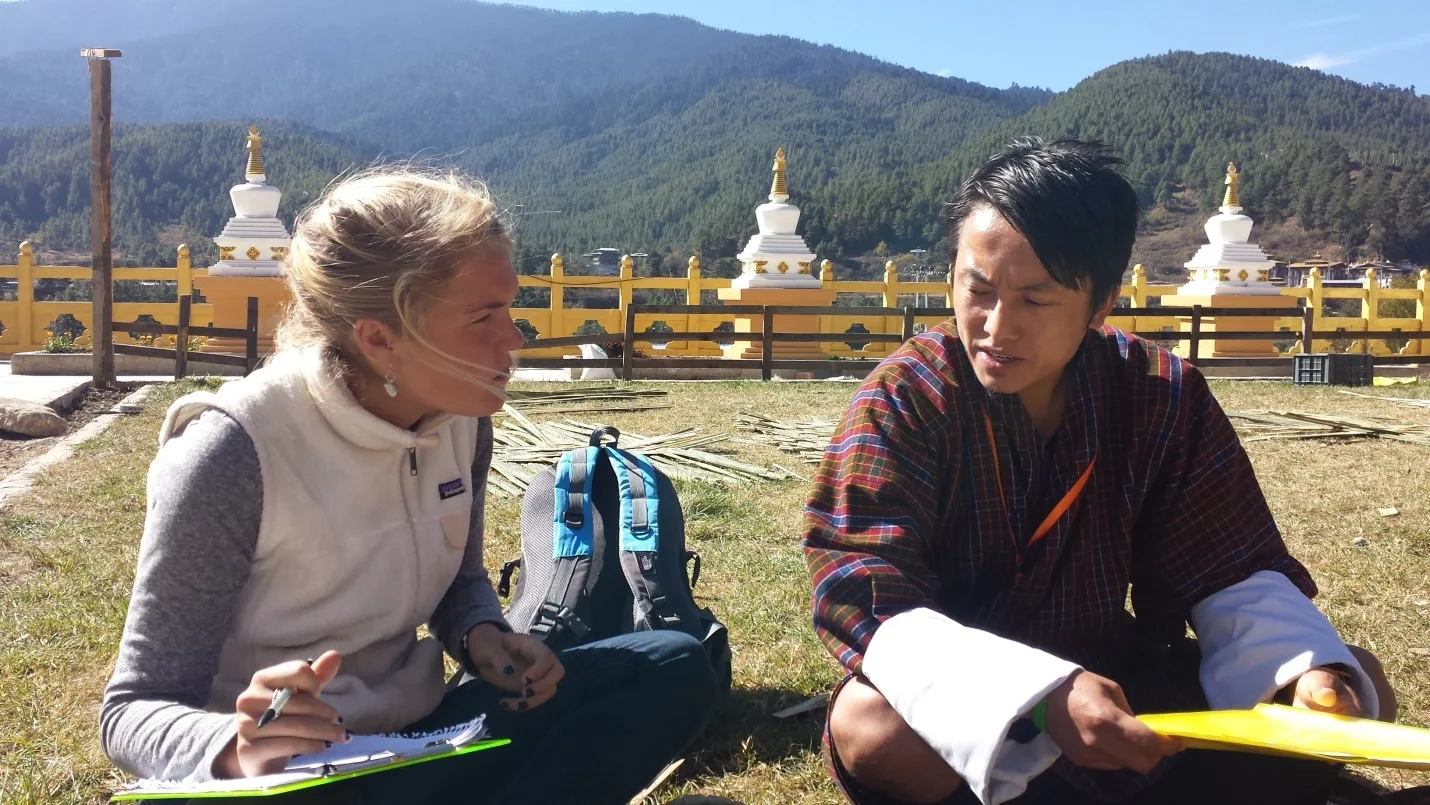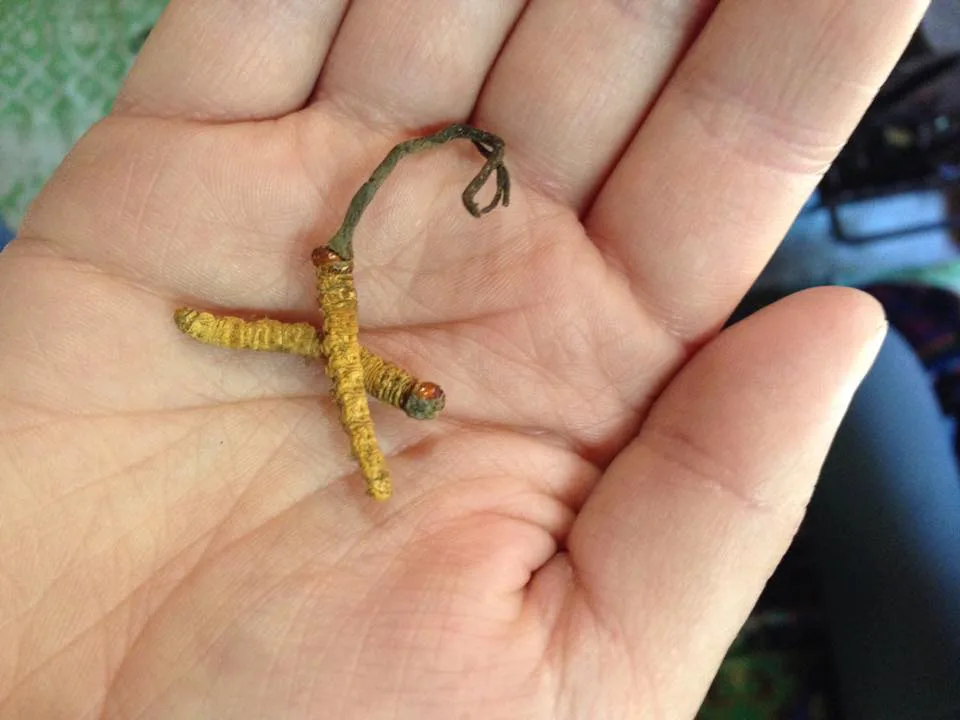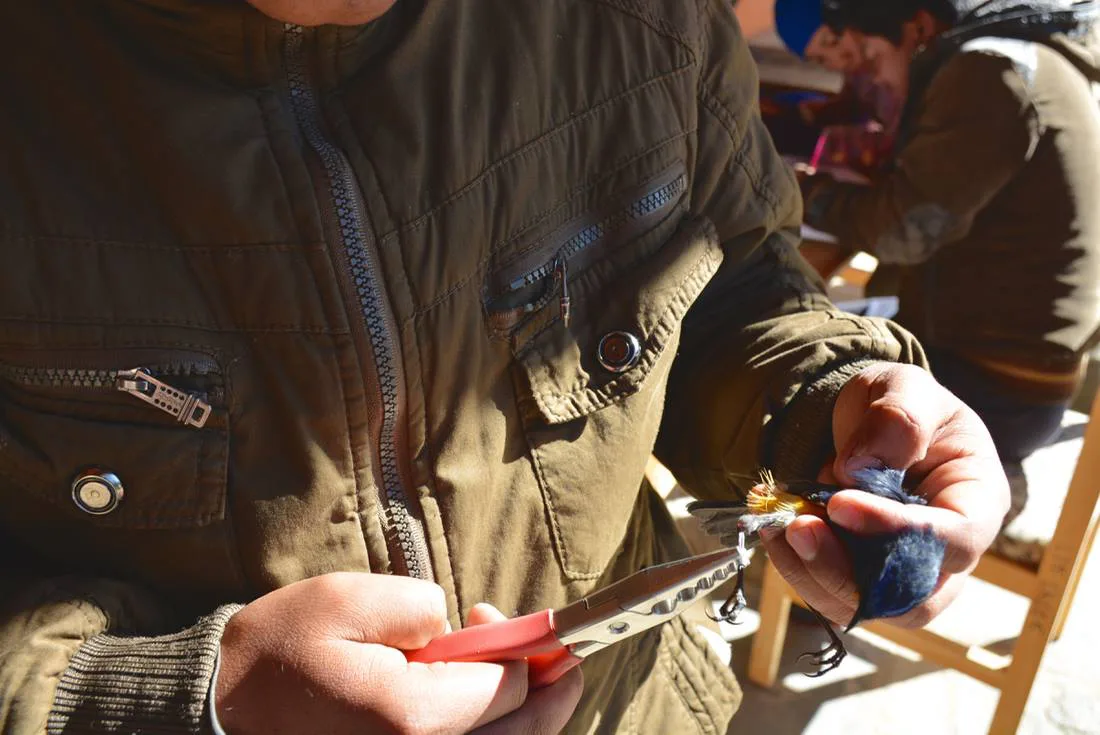Directed Research in Bhutan
Since returning from our two week adventure in Punakha, and completing finals, we have all launched into our Directed Research (DR) projects! We have six projects that we are working on this semester, focusing on a wide range of topics from rural livelihoods to avian diversity.
My research project is focused on a multidimensional analysis of zoonoses (diseases that can be passed between animals and humans) in the Chhokhor Valley in Bumthang. The three individual projects we are doing are looking specifically at how canines, water, and food transmit these diseases. The analytical method we are using is called the One Health approach. One Health is the interconnectedness of humans’ health with wildlife, domestic animals, plants, and the environments in which they live. We have been working with local veterinary and medical personnel as well as Ugyen Wangchuck Institute for Conservation and Environment (UWICE) staff to collect our data, and have also been conducting a survey throughout the valley on perceptions of zoonotic diseases and how they are transmitted.

Emma and our One Health interpreter, Kinley recording data during a survey.
A group studying rural livelihoods has been conducting semi-structured interviews with individuals mainly living in rural areas in Chhokhor Valley. They are looking at various aspects of plant uses including medicinal value and economic benefits. We also have a group studying avian diversity, which is examining three different land types and the birds living there. They are looking at transects and performing measurements on birds captured in mist nets daily. One team is looking at various aspects of community forests, including management practices and how community forests support livelihoods. They are also collecting GIS and mensuration data. They have been on an excursion to Tang for the past three nights, conducting interviews and gathering data.
The last group has been doing a biodiversity assessment of the UWICE campus. They are using camera traps and plant identification among other techniques to assess the area. This is an extremely busy time, collecting data and conducting interviews. We are all looking forward to having a short break for our Thanksgiving celebration!

Cordyceps collected by residents of Bumthang.

One of the UWICE researchers banding a bird that was caught in the mist nets as part of the avian diversity project.
→ Himalayan Environment & Society in Transition Semester Program in Bhutan
Related Posts

Restoration on a Cinder Cone: A Syntropic Story

